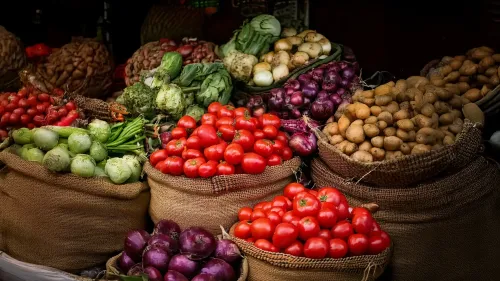Are Rising Covid Cases in Southeast Asia Just Seasonal Trends?

Synopsis
Key Takeaways
- Covid-19 cases in Southeast Asia are predominantly mild.
- Health experts attribute the rise to seasonal flu patterns.
- Widespread immunity from vaccinations contributes to milder cases.
- Precautions such as wearing masks in crowded places are advised.
- India's Covid situation remains under control with minimal active cases.
New Delhi, May 20 (NationPress) Recent media reports have highlighted a spike in Covid-19 cases across Southeast Asia, raising concerns about a virus that has previously impacted millions globally and the economy. However, health professionals on Tuesday characterized these trends as typical seasonal flu patterns.
According to the latest reports, Covid-19 infections in Singapore increased by 28% from 11,100 cases in late April to 14,200 in the first week of May, with hospitalizations also climbing by 30%.
Hong Kong has seen 31 virus-related fatalities in the week ending May 3, marking the highest weekly death toll in a year. New infections in Hong Kong rose to 1,042 the week ending May 10, up from 972 the previous week.
Dr. Harshal R Salve, Additional Professor at the Centre for Community Medicine at AIIMS in New Delhi, stated, “The uptick in Covid cases in Southeast Asia is linked to seasonal flu trends. Most cases are mild and do not necessitate hospitalization.”
India has also experienced a slight increase in cases. A review by the Ministry of Health on Monday indicated that the situation is “under control,” with only 257 active cases reported nationwide as of May 19.
“Covid-19 is a cyclical illness, with case surges occurring every few months, typically every six to nine months. Similar to other Asian nations, we are observing Covid cases in India as well, but they are not overwhelming hospitals and are not more severe than previously. In fact, most cases are mild and managed as outpatients,” Dr. Rajeev Jayadevan, Convener of the Research Cell for Kerala State IMA, explained.
“Thanks to widespread immunity from vaccinations and past infections, Covid-19 no longer poses the same threat as before. There are no signs of a significant genetic change in the virus that could alter its impact,” he added.
China and Thailand have also noted a significant rise in new infections, primarily due to the spread of new Omicron subvariants, such as JN.1 along with its descendants — LF.7 and NB.1.8, which account for over two-thirds of sequenced cases.
This increase in cases might also be due to diminishing immunity, with periodic surges expected.
While reported cases are generally mild, “the outcome can vary based on the host. For instance, an infection in an elderly individual with frailty could result in more severe consequences,” Jayadevan cautioned.
Experts recommend maintaining proper cough hygiene and cleanliness to combat the virus.
“As cases rise, it’s crucial to adopt additional precautions. Wearing masks in crowded indoor spaces can be effective. Individuals experiencing fever should remain at home and avoid contact with others,” Jayadevan advised.
Meanwhile, the health ministry reassured that the country has a robust surveillance system for respiratory viral illnesses, including Covid-19, through the Integrated Disease Surveillance Programme (IDSP) and ICMR.









